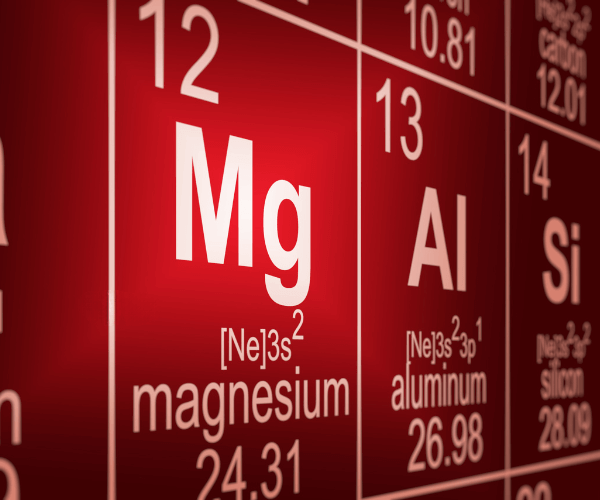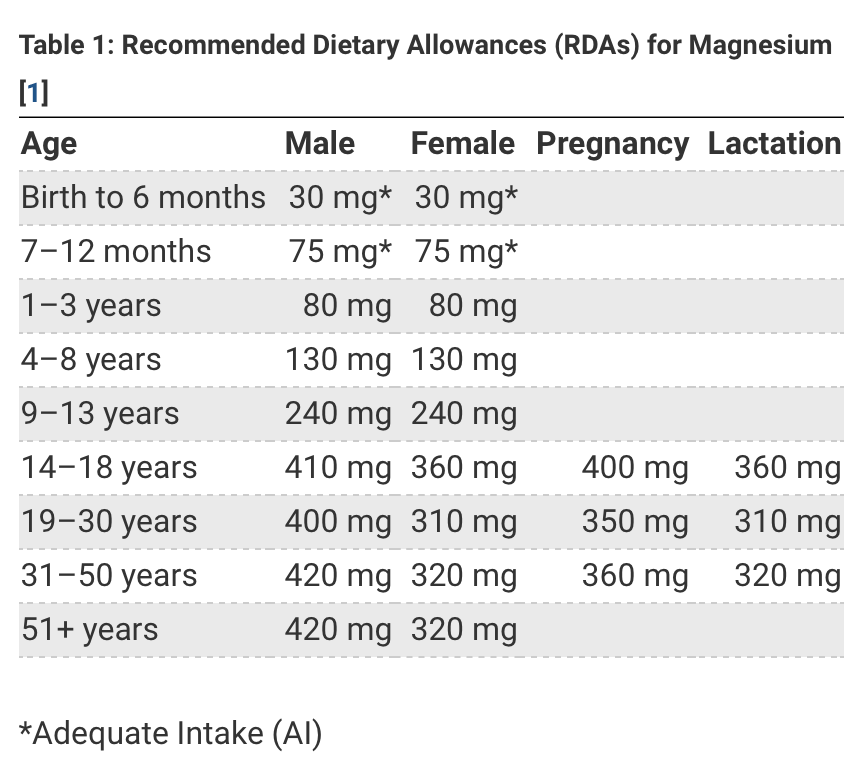Key Takeaways:
- Magnesium is an essential mineral vital for over 300 biochemical reactions in the body.
- Adequate magnesium intake is linked to numerous health benefits, including improved heart health, better bone strength, and enhanced blood sugar control.
- Understanding the right sources and amounts of magnesium can help prevent deficiency and optimize overall health.
Magnesium is a powerhouse mineral that often doesn't get the spotlight it deserves.
With its involvement in numerous metabolic processes, understanding what magnesium vitamins are good for can be a game-changer for your health.
This article dives deep into the benefits of magnesium, its dietary sources, and the potential risks of both deficiency and excess.
What Exactly is Magnesium?
Magnesium is a chemical element that is crucial for human health. It plays a crucial role in the function of nerves, muscles, and many other parts of the body.
In the world of minerals, it's a true all-rounder, contributing to everything from energy production to the structural development of bone.

The Role of Magnesium in the Body
Magnesium's list of responsibilities is long and impressive. It's involved in protein synthesis, muscle and nerve function, blood glucose control, and blood pressure regulation.
This essential mineral is also necessary for producing energy and creating important molecules like DNA and RNA.
How Much Magnesium Do You Need?
The Food and Nutrition Board has set recommended dietary allowances (RDAs) for magnesium depending on age and gender. For most adults, the RDA ranges from 310 to 420 mg of magnesium per day.
However, dietary surveys suggest that many people get less than their recommended amount, leading to widespread magnesium deficiency.

Signs of Magnesium Deficiency
A lack of enough magnesium can manifest in many ways. Common symptoms include muscle cramps, mental disorders, osteoporosis, fatigue, and irregular heartbeats.
Since magnesium plays a pivotal role in so many bodily functions, the signs of deficiency can be quite diverse.
Benefits of Magnesium
Heart Health and Magnesium
Magnesium is like a guardian for your heart. Studies have shown that higher magnesium intake is associated with a lower risk of cardiovascular disease.
It helps regulate blood pressure, which is a major factor in preventing heart attacks and strokes.
Bone Health Boosted by Magnesium
Just like calcium, magnesium is vital for maintaining normal bone structure. It works in partnership with calcium to help build strong bones, which is why a magnesium-rich diet is crucial for fighting against bone-related disorders like osteoporosis.
Magnesium and Blood Sugar Control
For those wrestling with blood sugar issues, magnesium might just be the ally you need.
It aids in carbohydrate metabolism and influences the release and activity of insulin, the hormone that helps control blood glucose levels. Adequate magnesium intake is associated with a lower risk of type 2 diabetes.
Our favorite: Isotonix Magnesium

Read more
Isotonix Magnesium stands out with its unique isotonic-capable formula that allows nutrients to be absorbed rapidly and efficiently by the body.
This supplement supports muscle health, maintains normal blood pressure, and promotes optimal nerve function.
Exclusive Insights:
· Rapid Absorption: The isotonic state of the supplement ensures that the magnesium is absorbed and used by the body quickly and effectively.
· Versatile Health Benefits: Supports not only muscle and nerve function but also contributes to the body's ability to maintain healthy blood pressure levels.
· Taste and Preparation: Comes in a powder form that needs to be mixed with water, which might not appeal to everyone; however, the pleasant taste enhances user experience.
Customer Review:
"I was skeptical about trying Isotonix Magnesium because of the mixing involved, but I'm glad I did! The taste is surprisingly good, and I've noticed a significant boost in my energy levels and overall muscle function. It's also been great for my blood pressure.
It's a little extra work to prepare each dose, but the fast absorption and the results are totally worth it. Highly recommend for anyone looking to improve their magnesium intake!"
Magnesium's Impact on Heart Disease Risk Factors
Did you know that a sprinkle of magnesium might just be what the doctor ordered for your heart?
Research suggests that maintaining normal magnesium levels can play a pivotal role in reducing heart disease risk factors.
For instance, magnesium helps manage systolic and diastolic blood pressure, which are crucial indicators of heart health.
By ensuring a healthy balance of dietary magnesium, individuals can support their cardiovascular system effectively, keeping those vital numbers in check.
Moreover, magnesium's ability to regulate muscle function extends to the heart muscle itself, promoting proper cardiac function. This mineral also aids in balancing electrolytes, which is essential for maintaining a steady heartbeat.
People with low levels of magnesium have been observed to exhibit increased heart disease risks, highlighting the importance of a magnesium-rich diet or appropriate supplementation like magnesium carbonate or magnesium lactate to safeguard heart health.
Magnesium Supplements: A Gateway to Better Health
When pondering over "what are magnesium vitamins good for?", consider the broad spectrum of health benefits they offer.
Magnesium supplements, often available as magnesium citrate, magnesium aspartate, and magnesium sulfate, play a pivotal role in maintaining magnesium balance in the body.
This is crucial for those who struggle to meet their magnesium needs through diet alone. Supplemental magnesium can help bridge this gap, ensuring that the body functions optimally, from muscle relaxation to improving sleep quality.
Moreover, the use of magnesium supplements can be a game-changer for individuals with specific health conditions.
For instance, those with low serum calcium can benefit significantly from these supplements, as magnesium helps regulate calcium levels in the body.
Additionally, for people experiencing chronic low magnesium symptoms, such as muscle cramps or irritability, adding a magnesium supplement to their daily regimen can provide much-needed relief and contribute to a healthier, more balanced lifestyle.
Pure Encapsulations Magnesium

Read more
Pure Encapsulations Magnesium provides essential support for muscle, cardiovascular, and bone health using a highly bioavailable form of magnesium.
This hypoallergenic formula is designed to be gentle on the stomach and free from many common allergens, making it ideal for individuals with sensitive systems.
Exclusive Insights:
· High Absorption: The magnesium in this supplement is in the form of magnesium citrate, known for its superior absorption and effectiveness.
· Allergen-Free Formula: Free from wheat, gluten, egg, peanuts, coatings and shellacs, GMOs, magnesium stearate, trans fats, and artificial colors, flavors, and sweeteners.
· Digestive Comfort: While gentle on the stomach, some users might still experience mild digestive upset if taken in high doses.
Customer Review:
"I've always struggled with leg cramps and trouble sleeping, but ever since I started taking Pure Encapsulations Magnesium, I've noticed a significant improvement. It's gentle on my sensitive stomach, and I love that it's free from allergens.
I'm finally getting the restful sleep I need, and my cramps have become a rare occurrence. This product has truly made a difference in my daily comfort and overall health."
The Role of Magnesium in Cardiovascular Health
Diving into the heart of the matter, magnesium's influence on cardiovascular health is profound.
Studies have shown that adequate magnesium intake is linked to better heart health, primarily through its ability to manage systolic blood pressure, a key risk factor for heart disease.
Magnesium acts almost like a natural calcium channel blocker, which helps reduce blood pressure levels and, in turn, lowers the risk of heart disease.
In addition to managing blood pressure, magnesium supplements, such as magnesium hydroxide and magnesium salts, also play a role in the overall maintenance of a healthy cardiovascular system.
They aid in the proper conduction of electrical signals in the heart, reducing irregular heartbeats and preventing complications.
For those looking to keep their ticker in top shape, integrating magnesium into a healthy diet can be a smart move.
The Role of Magnesium in Managing Diabetes
Navigating the stormy seas of diabetes management can be significantly smoothed by the inclusion of magnesium in one's diet.
Magnesium aids in enhancing insulin sensitivity and may help manage insulin resistance, two vital components in controlling diabetes.
Studies have shown that individuals with higher dietary intake of magnesium are at a reduced risk of developing type 2 diabetes, underscoring the importance of this mineral in metabolic health.
Furthermore, oral magnesium supplementation can be a boon for those struggling to maintain optimal magnesium levels through diet alone, especially in the context of using proton pump inhibitors which can lower stomach acid and, consequently, magnesium absorption.
By boosting your body's magnesium status, you not only support your insulin regulation but also contribute to a more stable and effective management of diabetes, making it a win-win scenario for maintaining overall health and well-being.
Dietary Sources of Magnesium
Magnesium Rich Foods
To boost your magnesium intake, turn to magnesium-rich foods like green leafy vegetables, whole grains, and pumpkin seeds. These foods are not only packed with magnesium but also with other nutrients that support overall health.

Supplements: Magnesium Citrate and Others
For those who struggle to get enough magnesium from their diet, supplements like magnesium citrate, magnesium chloride, and magnesium oxide are available.
These can help fill the nutritional gap but should be taken under the guidance of a healthcare provider.
Risks of Too Much Magnesium
While it's important to get enough magnesium, too much can lead to problems. Excess magnesium can cause diarrhea, nausea, and abdominal cramping.
Extremely high intakes can lead to magnesium toxicity, with symptoms including irregular heartbeat and cardiac arrest.
Magnesium for Specific Health Conditions
Magnesium and High Blood Pressure
Taking magnesium supplements may lead to improvements in blood pressure, especially in people with hypertension. By relaxing blood vessels, magnesium helps to lower blood pressure, thereby reducing the risk of stroke and heart disease.
Managing Diabetes with Magnesium
Magnesium plays a significant role in glucose metabolism, helping to regulate blood sugar levels.
This is particularly beneficial for those with poorly controlled diabetes, as magnesium can help stabilize their blood sugar levels.
Life Extension Neuro-Mag

Read on
Life Extension Neuro-Mag is a magnesium supplement specifically formulated to support brain health and maintain neurological and cognitive function as you age.
It features magnesium L-threonate, a form of magnesium shown to effectively raise the brain's magnesium levels.
Exclusive Insights:
· Targeted Brain Health Support: Magnesium L-threonate has been shown to particularly benefit brain health, enhancing memory and cognitive function.
· Bioavailability: This form of magnesium is highly bioavailable, ensuring more magnesium reaches the brain where it’s needed.
· Potential Side Effects: While beneficial, some users may experience mild headaches or dizziness initially as the body adjusts to higher magnesium levels.
Customer Review:
"After my doctor recommended I try magnesium for my memory lapses, I picked up Life Extension Neuro-Mag. I was a bit skeptical at first, but honestly, it's been a game-changer.
My memory feels sharper, and I find it easier to focus at work. I did have a slight headache the first few days, but it quickly subsided. I'm really impressed with the improvements in my cognitive function!"
Integrating Magnesium into Your Diet
Incorporating more magnesium into your diet doesn't have to be a chore. Adding a handful of pumpkin seeds or a serving of spinach to your meals can significantly boost your magnesium intake.
Remember, a balanced diet rich in fruits, vegetables, and whole grains generally provides most of the magnesium a person needs.
Consulting Your Doctor
Before starting any new supplement regimen, including magnesium, it's crucial to talk with your primary care doctor. They can provide guidance based on your specific health needs and conditions.
Final Thoughts
Magnesium is an essential mineral that supports hundreds of reactions in the human body.
From improving heart health and bone strength to aiding in blood sugar control, the benefits of magnesium are vast and significant.
By understanding the sources of magnesium and how to incorporate them into your diet, you can take a proactive step towards enhancing your health.
FAQ's
Q: How much magnesium should I take daily?
A: The recommended daily allowance for adults varies from 310 to 420 mg, depending on age and gender. Consult with a healthcare provider for personalized advice.
Q: Can you get enough magnesium from food?
A: Yes, many foods like green leafy vegetables, nuts, seeds, and whole grains are rich in magnesium. A diet incorporating these foods can meet most individuals' magnesium needs.
Q: What are the signs of magnesium deficiency?
A: Common signs include muscle cramps, fatigue, mental disorders, and irregular heartbeats. If you experience these symptoms, consult a healthcare professional.
Looking for the best products? We've got you covered! Our editors have handpicked each item on this list. EisonReports may receive a share of sales or compensation if you choose to make a purchase through the provided links. Reviews have been edited for brevity and clarity. Enjoy discovering products to enhance your life!








